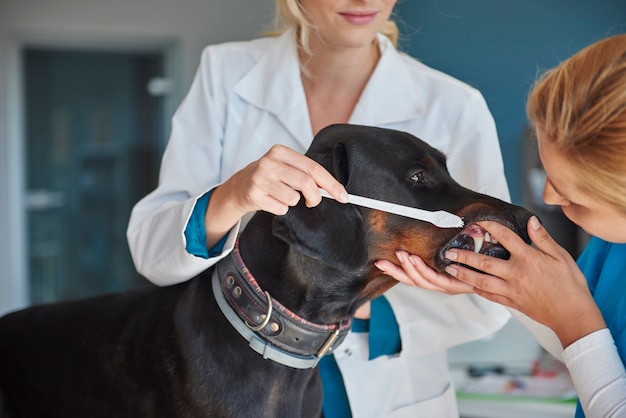How to Spot Urinary Issues in Dogs and Cats


How to Spot Urinary Issues in Dogs and Cats
As a caring pet owner, few things are as distressing as seeing your dog or cat struggle with discomfort during bathroom breaks. Whether it’s frequent trips to the litter box, accidents in the house, or visible pain while urinating, urinary issues in pets can cause anxiety for both you and your furry companion. Recognizing the early warning signs of pet urinary symptoms is crucial for ensuring your pet’s comfort and health. At South Park Animal Hospital, located at 598 2nd Street, San Francisco, CA 94107, our team of veterinarians is committed to providing comprehensive care, from preventive wellness exams to urgent solutions for sudden health concerns.
In this guide, you’ll learn how to identify the signs of urinary issues in pets, understand potential causes, explore treatment options available at our San Francisco veterinary hospital, and know when it is time to schedule an appointment for your pet. We’ll also share how pet owners in San Francisco and surrounding communities can benefit from local, quality veterinary services. If you’re searching for a vet near me who understands the urgency and importance of pet urinary health, our compassionate veterinary professionals are here to help. For those seeking more insight into preventive care, our wellness examination services are designed to catch health problems early and keep your pets thriving.
Recognizing the Signs of Urinary Issues in Pets
Urinary issues in pets often begin subtly, but attentive owners will notice changes in their dog or cat’s daily habits. Key symptoms include frequent urination, straining or difficulty passing urine, accidents indoors for previously house-trained pets, and visible discomfort such as whining or licking the urinary opening. In cats, you might observe repeated trips to the litter box with little or no urine produced, or urinating outside the box altogether. For dogs, sudden changes in where or how often they urinate can be a red flag.
Other warning signs to watch for are blood in the urine, strong or foul-smelling urine, excessive thirst, and in severe cases, lethargy or vomiting. Some pets may show signs of pain when touched near the abdomen or may develop a hunched posture. Recognizing these symptoms early allows you to act quickly, which is especially important for conditions like urinary obstruction that can escalate rapidly, particularly in male cats.
If you notice any of these pet urinary symptoms, it’s important to monitor your pet closely and make note of any changes in their routine. Early intervention from a quality vet near me can make all the difference in your pet’s recovery and comfort.
What Causes Urinary Issues in Dogs and Cats?
Understanding why urinary problems develop in pets can help you work proactively with your veterinary team. Common causes of urinary issues in pets include urinary tract infections, bladder stones, crystals in the urine, anatomical abnormalities, and underlying medical conditions such as diabetes or kidney disease. Infections are particularly common in female dogs, while male cats are at higher risk for life-threatening urinary blockages.
Stress, changes in routine, obesity, and poor diet can also contribute to urinary problems, especially in cats. Environmental factors, such as a dirty litter box, infrequent walks, or limited access to fresh water, may encourage pets to hold their urine, increasing the risk of infection or stone formation.
In San Francisco’s mild, sometimes damp climate, it’s not uncommon for pets to drink less water during cooler months or to experience more indoor time, which can affect their bathroom habits. Knowing these risk factors allows pet owners to make informed decisions about preventive care and home management.
How Are Urinary Issues in Pets Diagnosed and Treated?
When you bring your pet to South Park Animal Hospital for urinary concerns, our veterinary professionals begin with a thorough history and physical examination. Diagnostic steps often involve urine testing to check for infection, blood, crystals, or abnormal cells. Advanced diagnostics such as bloodwork, digital radiology, or ultrasound may be recommended to identify stones, tumors, or underlying organ dysfunction. Our diagnostic lab services in San Francisco provide fast and accurate results, supporting timely decision-making for your pet’s care.
Treatment approaches depend on the underlying cause. For bacterial infections, antibiotics are typically prescribed, while bladder stones or urinary obstructions may require surgical intervention. Our hospital offers specialized procedures such as urinary obstruction surgery for dogs and cats, ensuring pets receive advanced care when necessary. For cats with idiopathic cystitis—a stress-related bladder inflammation—management may include pain relief, dietary changes, and environmental enrichment.
Supportive care often involves increasing water intake, modifying diet, and, in some cases, medications to promote bladder health. The goal is always to resolve discomfort, prevent recurrence, and safeguard your pet’s long-term well-being through tailored veterinary services in San Francisco.
Preventing Urinary Issues and Supporting Pet Health at Home
While not every urinary problem can be avoided, there are several steps you can take at home to reduce your pet’s risk. Providing constant access to fresh, clean water encourages healthy hydration, which helps flush the urinary tract. For cats, keeping litter boxes clean and accessible—and offering multiple boxes in multi-pet homes—can make a significant difference. For dogs, regular walks and opportunities to urinate outdoors are essential.
Feeding a high-quality, balanced diet recommended by your veterinarian supports urinary health, and some pets may benefit from specialized urinary formulas. Managing stress, maintaining a healthy weight, and observing your pet’s bathroom habits regularly are vital components of preventive care. If you have questions specific to your pet’s needs, our team is always happy to offer guidance during routine wellness examinations.
For additional advice tailored to your pet’s species, you may find our dog resources and cat resources helpful as you support their urinary health at home.
When to Seek Veterinary Care for Pet Urinary Symptoms
Urinary symptoms in pets should never be ignored, as some conditions can become serious or even life-threatening without prompt attention. You should schedule an appointment with our team of veterinarians if your pet is urinating more frequently than usual, straining to urinate, having accidents, or showing signs of pain. Blood in the urine, a complete inability to pass urine, vomiting, or lethargy require immediate veterinary care, as these symptoms can signal a medical emergency.
Early intervention not only relieves your pet’s discomfort but can also prevent complications such as kidney damage or infection. Our approach is always to provide compassionate, comprehensive care, supporting your pet from initial diagnosis through treatment and long-term prevention. For those searching for the best veterinarian near me or pet urinary care in San Francisco and surrounding neighborhoods, South Park Animal Hospital is ready to help your pet feel better as quickly as possible.
Supporting Your Pet’s Urinary Health with Local Veterinary Care
Spotting urinary issues in pets early is essential for their comfort and long-term health. By knowing the signs to watch for, understanding potential causes, and acting promptly, you protect your dog or cat from unnecessary pain and complications. Our veterinary team at South Park Animal Hospital is dedicated to providing quality vet near me services, including preventive care and advanced treatment options for urinary issues in San Francisco. If your pet is showing any symptoms discussed here, or if you’re simply looking to schedule a proactive wellness examination, we encourage you to reach out.
To book a consultation or learn more about our full range of veterinary services in San Francisco, call us at (415) 523-4404 or visit us at 598 2nd Street, San Francisco, CA 94107. Our team of veterinarians is here to help your pet live a happy, healthy life—because your peace of mind matters, too.
This article is for informational purposes only and should not be used as a substitute for professional veterinary advice. If you have concerns about your pet’s urinary health, please consult our veterinary professionals directly.




















